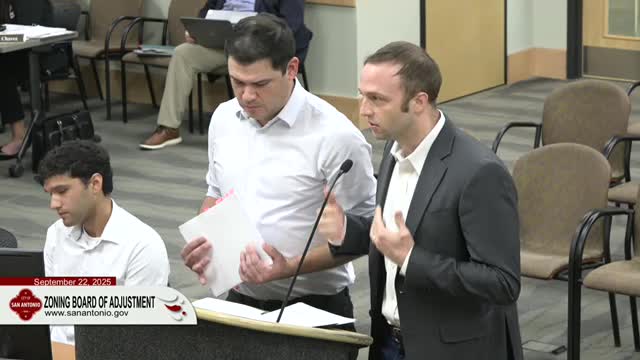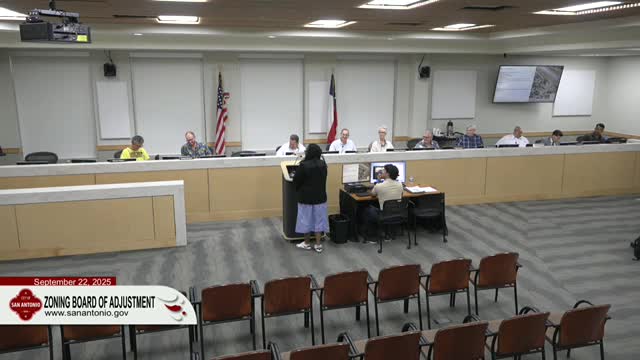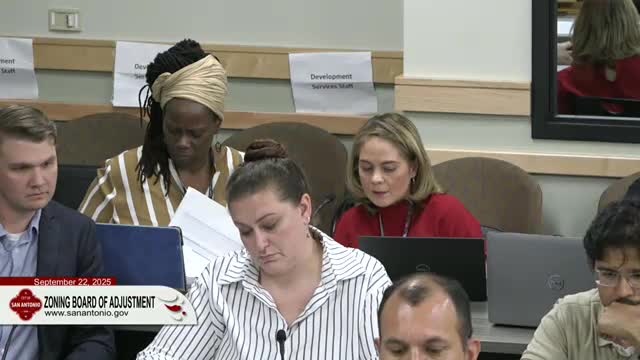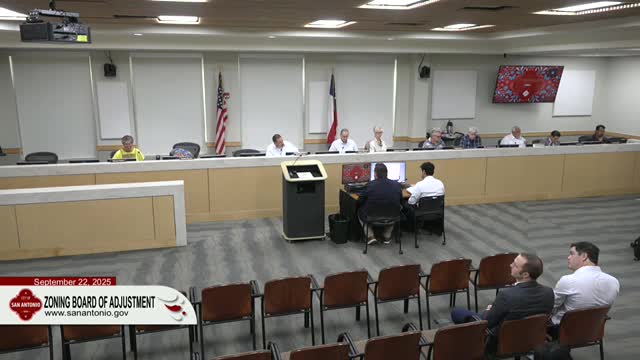Article not found
This article is no longer available. But don't worry—we've gathered other articles that discuss the same topic.

Board approves lot‑size and accessory‑structure variances for two infill properties

Board allows 6‑foot perimeter chain‑link fence at Pecan Valley auto site for security

Board approves mobile food‑court use near Zachary Middle School, waives 200‑foot separation

